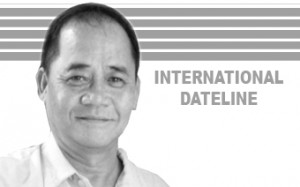 According to the World Health Organization, there are 32,000 people in South Africa suffering from multiple drug resistant TB and 2.5 million on ARVs (anti-retroviral therapies). WHO said 1 out of 20 HIV-positive patients worldwide were infected by a drug-resistant strain of tuberculosis.
According to the World Health Organization, there are 32,000 people in South Africa suffering from multiple drug resistant TB and 2.5 million on ARVs (anti-retroviral therapies). WHO said 1 out of 20 HIV-positive patients worldwide were infected by a drug-resistant strain of tuberculosis.
It is a fact that South African countries and all other poor and developing countries are dependent or in needof affordable medicines. The big challenge is how governments provide affordable medicines to the people.
The advancement of the generic industry is vital for the supply of low-cost medicines. This is very important to poor countries with no health care resources.
Accordingly, India is one of the key providers of generics to developing countries. It has supplied generic medicines to global aid and non-profit organizations such UNICEF, PEPFAR, Medecins Sans Frontieres and the Global Fund.
But the global patent law like the World Trade Organization agreement on Trade-Related Aspects of Intellectual Property (TRIPS) hinders the generic industry to manufacture certain drugs. This patent law gives big manufacturers exclusive supply for 20 years and the power to control drug prices.
India has already granted patents to US firms to manufacture TB, HIV and Hepatitis C medicines, thus India’s generic manufacturers cannot reproduce those certain drugs for affordable price.
Having learned lessons, India’s patent authority presently denied patent applications from big pharmaceuticals which manufacture cancer and hepatitis C drugs, so that Indian manufacturers can produce the cheaper generics of the same medicines.
It is a problem today to provide affordable drugs to patients, because medicines still under patent law are very expensive. Some generic medicines which have no patent block benefit cut-down prices.
The development of the generic industry really brought pressures on big multinational pharmaceutical firms that are dependent on patents to protect the intellectual property of their products.
The current free trade agreements such as the TPP, TTIP & TISA which have been negotiating for many years and reportedly controlled by the elites and big corporations, if it finalizes isan additional big challenge &hindrance to generics’ ability to produce affordable medicines for the people.
As it has been said, developing countries should consider alternatives, like the need for widespread research and development of new medicines and vaccines that likewise allows additional companies to enter the market and safeguard competitive prices.
The future of generic drug production hangs in the balance,so likewise the treatments of the poor.
***
Tidbits:
Since the European Union discontinued its search-and-rescue mission in the Mediterranean and concentrated on border patrols, the humanitarian crisis grew. In the meantime, merchant vessels and crews such as the (MSF) Medecins Sans Frontieres, an Irish vessel and others and an Italian coastguard helicopter continue to play a vital role in the maritime duty to save people whose lives are in danger at sea.A total of 188,000 migrants have been rescued in the Mediterranean, according to International Organization for Migration (IOM) figures.
***
“Great achievements involve great risks.†(By Edgar Allan J. Tac-an)
